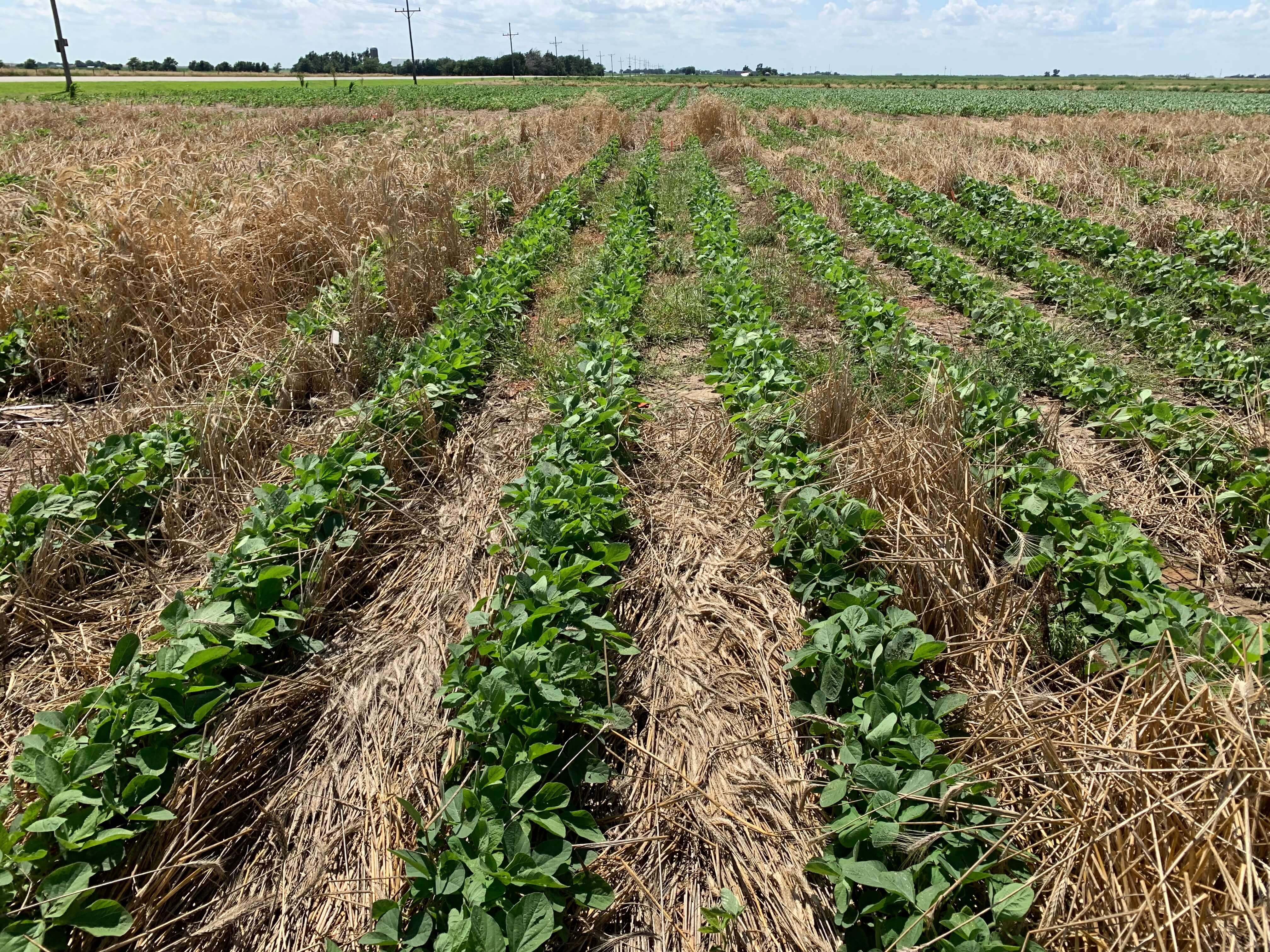Carbon Program Pays Off For Great Bend Co-op Growers
Dec 21, 2021

As your local Truterra® aligned cooperative in Central Kansas, Great Bend Co-op was able to return over $625,000.00 in Carbon Offset Credit dollars to our growers for implementation of sustainable farming practices on their acres. This was over 15% of the total TrucCarbon® Payout in 2021, making Great Bend Co-op #1 in the Nation for dollars returned to our growers in this carbon program.
In early 2021, Truterra launched a first-of-its-kind Carbon Offer called TruCarbon. This offer allowed growers to “look back” over the past 5 years and identify positive practices that they have implemented on their operations that would increase the CO2 sequestration and holding capacity of their tillable acres.
Great Bend Co-op chose to join the TruCarbon program knowing that we have some of the best producers in the industry as our grower-owners and that they have been implementing these qualifying practices to increase profitability while being strongly sustainable.
Our Precision Ag team helped growers through the entire process from beginning to end. Growers who have been utilizing the Truterra Insights Engine with us for the past several years were able to access that data and use it to build their five-year history that was required for this program.
Great Bend Co-op farmers who were accepted into the 2021 TruCarbon program reduced CO2 in the atmosphere by 31,338 Metric Tons by implementing cover crops and reducing tillage practices on their farms.
What does CO2 have to do with farming? Agricultural land has the capacity to sequester and hold CO2 before it can reach the upper atmosphere. Crops absorb CO2 and turn it into a food source through the process of photosynthesis. The plants also release Oxygen during this process. The longer the soil has a healthy, growing crop or plant on it, the more CO2 it converts from the air, thus the importance of having a cover crop on the field between cash crops.
How does tillage affect CO2 levels in the soil? Tillage, or disrupting the soil, can cause the loss of significant amounts of carbon, lost as CO2 burst, immediately following the disruption. The exposure of soil organic carbon to aeration during soil erosion increases CO2 lost to the atmosphere. Therefore, by reducing tillage, growers are reducing these CO2 bursts. CO2 is brought to the soil on decomposing plant matter which is broken down into the soil by microorganisms and changed into Soil Organic Carbon which can be held in the soil for many decades.
What can a producer do to get in a program like this? The new Truterra Carbon Program is now CLOSED for new enrollment. This program is another 5-year “look back” program that will benefit those growers who have implemented reduced tillage or cover crops in the last five years. Please check back for the next available offer!
In early 2021, Truterra launched a first-of-its-kind Carbon Offer called TruCarbon. This offer allowed growers to “look back” over the past 5 years and identify positive practices that they have implemented on their operations that would increase the CO2 sequestration and holding capacity of their tillable acres.
Great Bend Co-op chose to join the TruCarbon program knowing that we have some of the best producers in the industry as our grower-owners and that they have been implementing these qualifying practices to increase profitability while being strongly sustainable.
Our Precision Ag team helped growers through the entire process from beginning to end. Growers who have been utilizing the Truterra Insights Engine with us for the past several years were able to access that data and use it to build their five-year history that was required for this program.
Great Bend Co-op farmers who were accepted into the 2021 TruCarbon program reduced CO2 in the atmosphere by 31,338 Metric Tons by implementing cover crops and reducing tillage practices on their farms.
What does CO2 have to do with farming? Agricultural land has the capacity to sequester and hold CO2 before it can reach the upper atmosphere. Crops absorb CO2 and turn it into a food source through the process of photosynthesis. The plants also release Oxygen during this process. The longer the soil has a healthy, growing crop or plant on it, the more CO2 it converts from the air, thus the importance of having a cover crop on the field between cash crops.
How does tillage affect CO2 levels in the soil? Tillage, or disrupting the soil, can cause the loss of significant amounts of carbon, lost as CO2 burst, immediately following the disruption. The exposure of soil organic carbon to aeration during soil erosion increases CO2 lost to the atmosphere. Therefore, by reducing tillage, growers are reducing these CO2 bursts. CO2 is brought to the soil on decomposing plant matter which is broken down into the soil by microorganisms and changed into Soil Organic Carbon which can be held in the soil for many decades.
What can a producer do to get in a program like this? The new Truterra Carbon Program is now CLOSED for new enrollment. This program is another 5-year “look back” program that will benefit those growers who have implemented reduced tillage or cover crops in the last five years. Please check back for the next available offer!